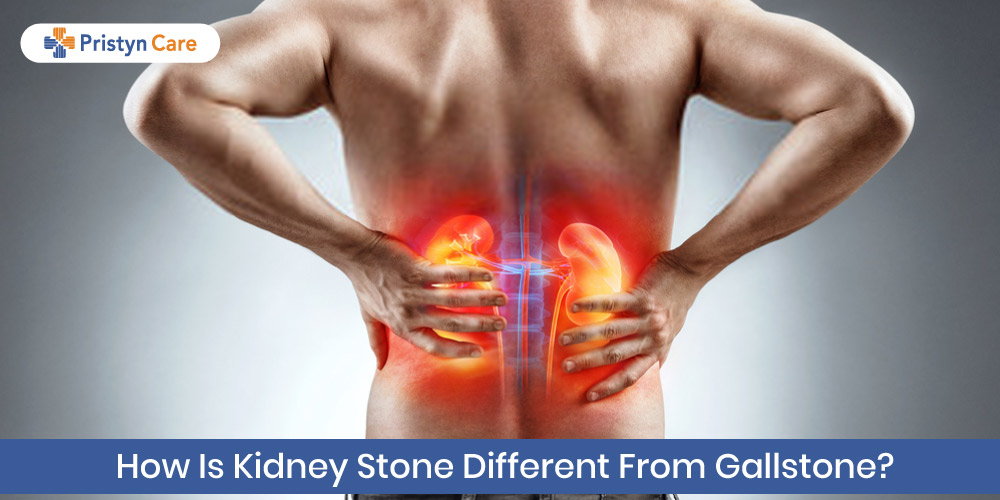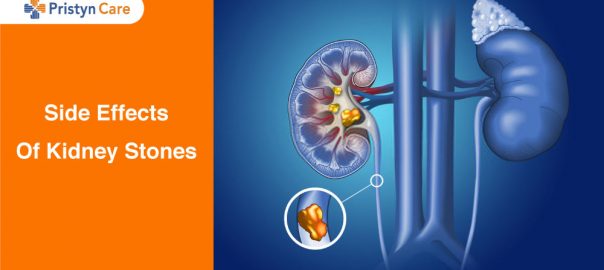![]() Views: 4,714
Views: 4,714
How Is Kidney Stone Different From Gallstone?
The functioning of both these organs is different. The kidney filters the blood and produces urine. The gallbladder serves the function of storing bile juice that the liver produces. The bile helps in the digestion of fats in the body.
Dedicated Support at Every Step!
Our Doctors are available 24 hours a day, 7 days a week to help you!
The functioning of both these organs is different. The kidney filters the blood and produces urine. The gallbladder serves the function of storing bile juice that the liver produces. The bile helps in the digestion of fats in the body.
Both kidney and gallbladder are prone to developing stones that cause immense pain and discomfort. But you must know that these stones are not similar in origin and nature. Hence, they require different treatments too.
Table of Contents
Here are all the differentiating factors between kidney stone and gallbladder stone:
Location of the stone
Kidney stones are lump-like structures that form in the kidneys or the urinary tract.
On the other hand, gallbladder stones are pebble-like structures that develop in the gallbladder (Digestive tract).
Types
Kidney stones can be categorized into four major types: Calcium stones, Uric acid stones, Struvite stones, and Cystine stones.
On the contrary, gallbladder stones are of two types: Cholesterol stones and Pigment stones.
Composition of the stone
Kidney stones usually contain excess minerals and acid salts that clump together to form stone-like structures.
Gallbladder stones usually consist of undissolved cholesterol, calcium bilirubinate and calcium carbonate.
How big can they be
The size of kidney stones can vary from a grain of sand to several centimeters.
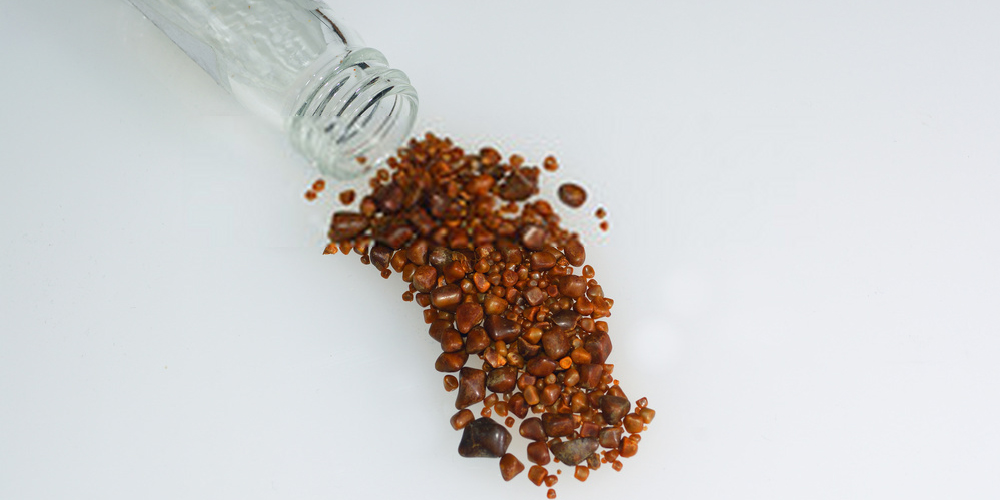
Gallbladder stones, on the other hand, can be as tiny as a sand grain or can grow as large as a golf ball.
Causes
The major cause of kidney stones is dehydration. Other factors that contribute to the development of kidney stones include obesity, heredity, unhealthy diet, lack of exercise, etc.
Similarly, numerous factors can contribute to the formation of stones in the gallbladder. These include a high-fat or cholesterol diet, obesity, age, heredity, and certain medications.
Symptoms
Kidney stones cause a sharp pain in the lower back. This pain comes in waves and may radiate to the groin or inner thighs. Other common symptoms of kidney stones include frequent urination, burning sensation while peeing, blood in the urine, nausea, etc.

Gallbladder stone pain originates in the mid-upper abdominal region and may radiate to the back or the right shoulder. Gallbladder stones may also cause other symptoms like nausea, chest pain, indigestion and vomiting.
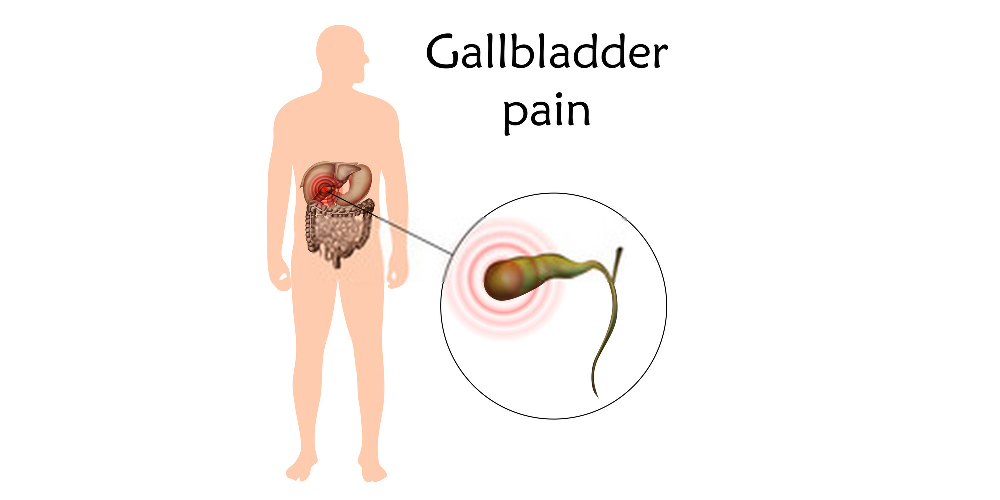
When do they cause pain
Kidney stones do not cause any pain or symptoms until they start to move around. The pain and symptoms arise only when the stones travel to other parts of the urinary tract and block it.
In a similar manner, gallbladder stones can be asymptomatic for a long time too. They cause pain only when they block the gallbladder or the bile ducts.
Foods that contribute to the development of stones
Foods that can cause kidney stones include- Carbonated drinks, excess of caffeinated beverages. Excess consumption of foods rich in oxalate such as nuts, spinach, beets, chocolate, rhubarb, etc. These foods should be consumed in a limit to prevent kidney stones.
Foods that lead to the formation of gallstones are- Deep-fried foods, red meat, junk food, too much cheese, butter, cake, cookies, and pies.
Prevention
Staying hydrated is the key to preventing kidney stones. You can lower the risk of kidney stones by drinking a lot of fluids and reducing your oxalate intake. Regular exercise also plays a major role in preventing kidney stones.
Gallbladder stones can be prevented by maintaining healthy body weight and adopting a healthy lifestyle. Exercise regularly and if you are trying to lose weight, do it gradually and slowly. Do not skip your meals and take a healthy and balanced diet.
No Cost EMI, Hassle-free Insurance Approval
Treatment
As mentioned above, kidney stones and gallstone require different treatment procedures. Let’s a detailed insight into the treatment for each of these.
Treatment for kidney stones
There are various medicines for kidney stones available that prove to be very effective in mild cases. Allopathy, homeopathy, and Ayurveda all offer medications for kidney stones. It entirely depends upon the person’s preference as to which medications they take.
You should be aware that medicines and changing food habits may not prove to bring desired results in complicated cases. So, in such cases, of severe or multiple kidney stones, shockwave lithotripsy is the best solution.
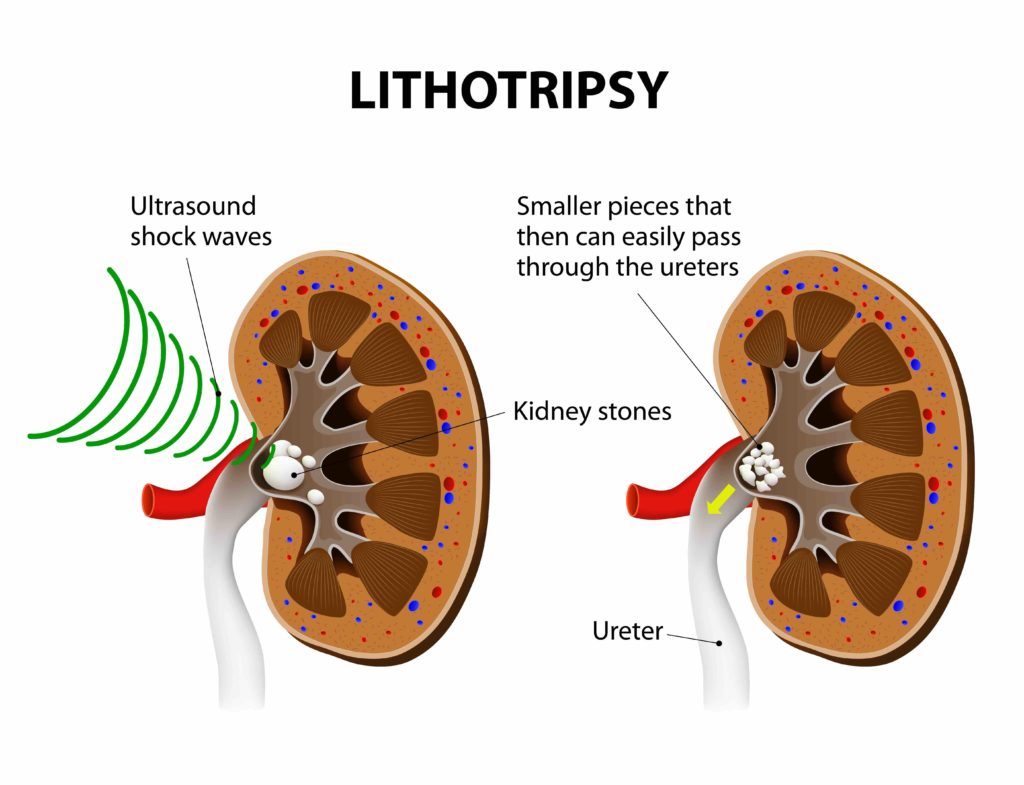
Shockwave lithotripsy is the modern surgical procedure that is minimally invasive in nature. The strong vibrations called shockwaves are impactful enough to crush the kidney stones. This treatment of shockwave lithotripsy (SWL) completes in just 30-40 minutes and inflicts no pain on the patient.
It will surprise even more to know that SWL offers speedy recovery and the person is good to lead a quality life within a week only. There are no complications or side-effects of shockwave lithotripsy for kidney stones.
So, if you are currently enduring the terrible pain of kidney stones, this is the right choice for you.
Treatment for gallstones
The choice of gallstone treatment option depends upon the size, severity, and location of the stones.
In mild cases, your doctor may prescribe certain oral medications that help dissolve the gallbladder stones. However, there is a high chance that these medications don’t work and even if they do, it takes months or years for the problem to resolve. And in many cases, gallstones tend to reoccur soon after treatment through medications.
Therefore, the most widely used treatment for gallstones is the surgical removal of the gallbladder. The laparoscopic procedure is normally used for removing the gallbladder. Gallbladder surgery is nothing to worry about, as you do not need the gallbladder to live. You can live a healthy and normal life without a gallbladder too.
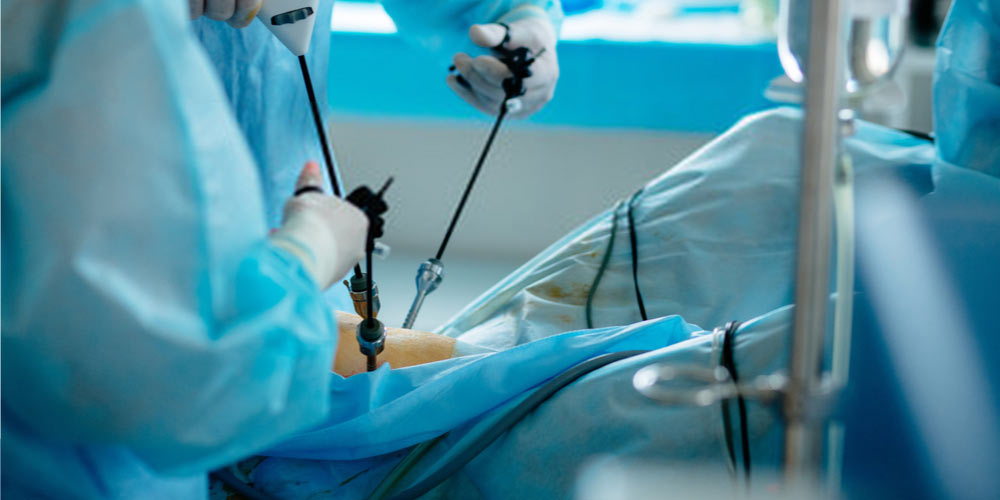
The Bottom Line
It is certainly not wise to ignore the symptoms of kidney stones or gallstones. If you face the episodes of dreadful pain that makes you miserable, reach out for help. These stones have to be treated in time to avoid any unprecedented trouble.
If you are currently in need of medical consultation, you can contact us at Pristyn Care. We have a team of specialists for both kidney stone and gallstone treatment. Thus, you don’t have to worry obsessively about your condition.
Allow us to help you lead a healthier and happier life!
Also Read:



